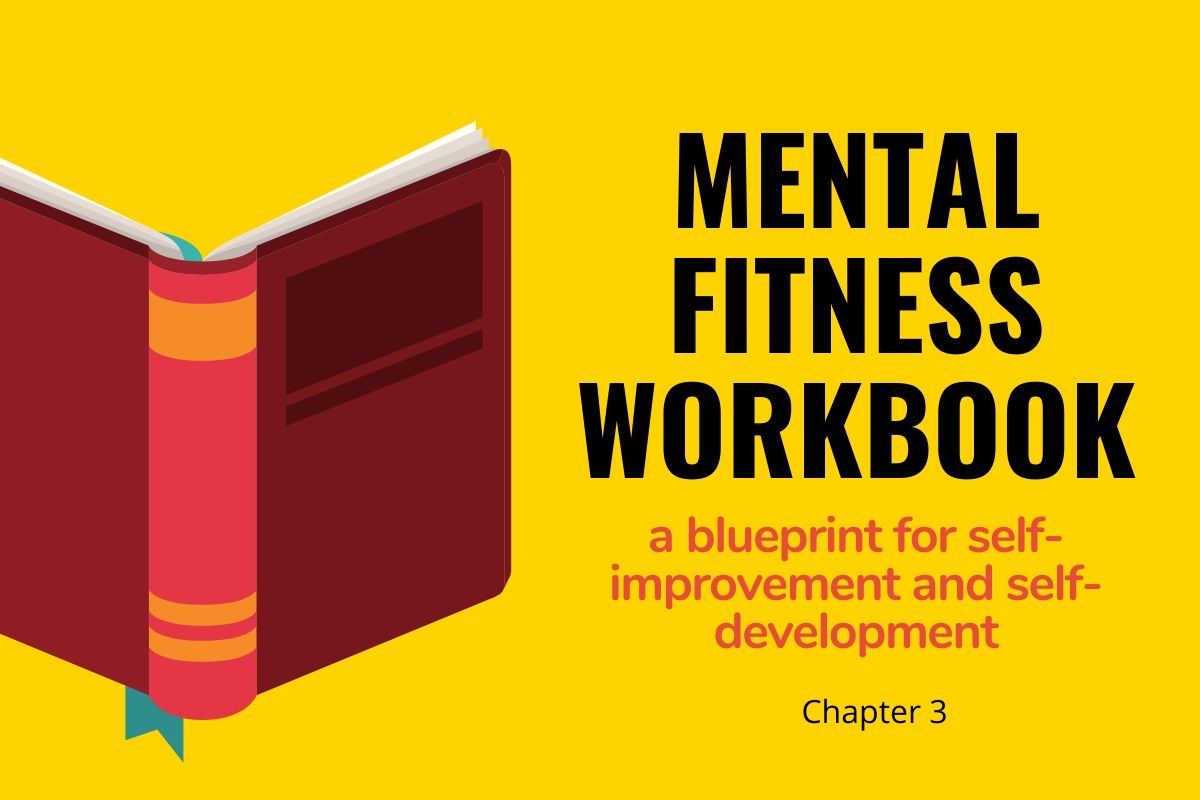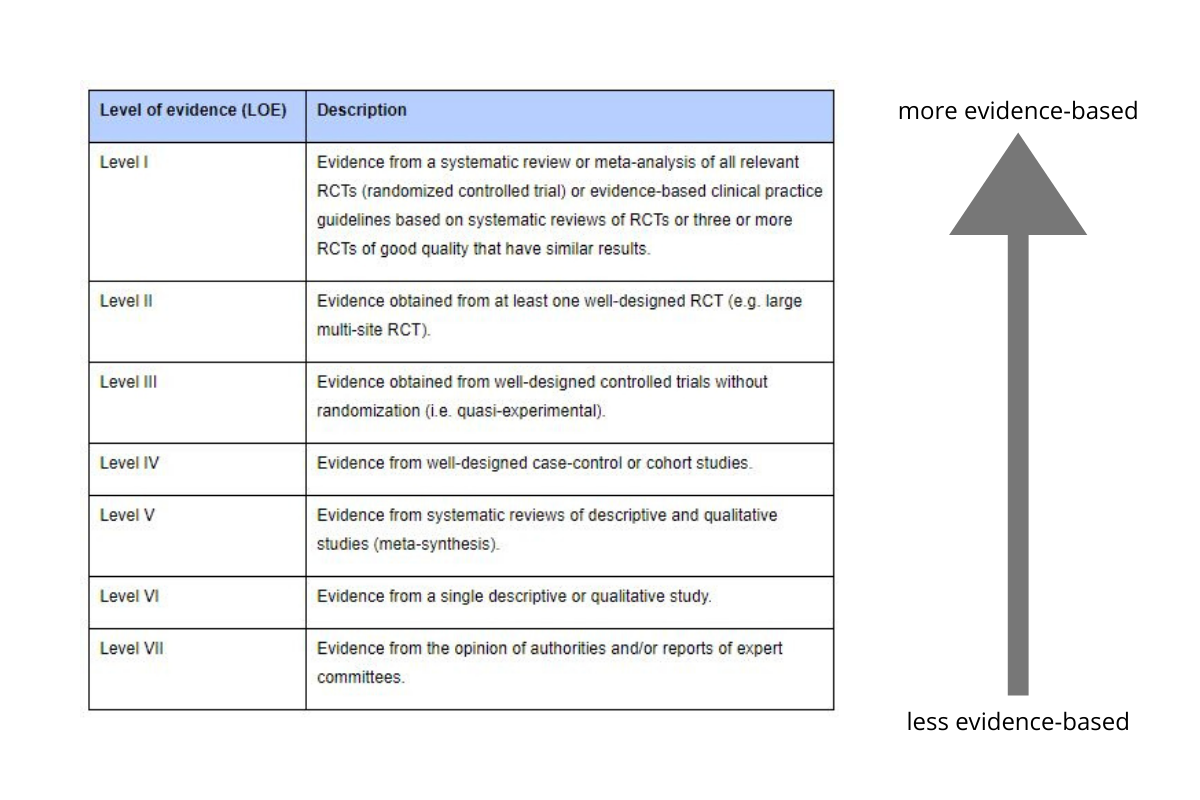
Having drawn my first Mental Fitness Course to a close, I am setting out with a new goal, to develop a Mental Fitness Workbook, that builds on my previous content to provide a complete blueprint for self-improvement and self-development. The workbook would be made available in print and digital versions for all students. Ambitious maybe, but why the hell not?
I’ll be blogging the process of developing the Workbook, so you can see it take shape, almost in real-time. In this post I present Chapter 3, a relatively short chapter which addresses the important questions of whether this workbook is ‘evidence-based’. I cover the meaning of ‘evidence-based’ and give a frank opinion of the workbook. You’ll note on the way through that I make references to sections and Chapters of the workbook that haven’t been written yet. Those chapters will show up, but I’ll write and post them sequentially.
Chapter 2 – What is mental fitness? Self-improvement as a type of mental fitness training.
Is this workbook evidence-based?
Before we get into the guts of this program, I want to address the question of whether this workbook and the ideas within are ‘evidence-based’.
This is an important question to answer, from my perspective as the person providing the workbook and who wants to be totally transparent, but it is also an important concept for you, the reader, to familiarise yourself with.
Why?
Well, if you decide to follow the ideas in this workbook, you are going to be setting off on a journey of personal self-improvement. Along the way you’ll accumulate different strategies and activities that you hope will make you a better person.
There are lots of people who will happily tell (or sell) you their suggestions for how to make your life better. I am one of those people. Some of their suggestions will be based on logic, theory, and good science. Others will be little more than opinion or intuition.
You will need to learn how to distinguish between the two. And to be honest it is not always easy. A while back I got quite sick and in the process of trying to heal myself, I followed a lot of bad advice, which at the time I thought was valid, but in hindsight I realise was not.
Thus a big part of your self-improvement journey will include learning to distinguish between:
- good quality information and bad quality information
- evidence-based improvement strategies and non evidence-based improvement strategies
- Good sources of information and bad sources of information
- Good ideas and bad ideas
I will go into detail on this in Chapter 8 under ‘Knowledge and Wisdom’. My goal is that you become a more sophisticated consumer of health-related and mental health related information.
However we can start that discussion here, in this chapter by exploring whether this workbook can be considered to be ‘evidence-based’ and what implications that has for your use of the content within it.
What does ‘evidence-based’ mean?
Broadly speaking, when we are talking about strategies or interventions or programs that are intended to modify someone’s health and/or wellbeing, ‘evidence-based’ refers to the extent to which there is scientific evidence that the strategy/intervention/program produces the benefits that it claims.
For example, there are nutritional supplements for which there is evidence that they have a beneficial effect for certain conditions (e.g. Vitamin D for depression) and there are supplements for which there is little or no evidence they have a beneficial effect.
How much evidence there is for any given strategy/intervention/program can range from ‘fuck all’ to ‘a lot’.
Scientists however use much more technical language to describe the level of evidence there is for a strategy/intervention/program. For example, the levels of evidence for a program are often represented in tables like this one, adapted from https://libguides.winona.edu/c.php?g=11614&p=61584

You don’t need to memorise the specifics of this table, other than to be aware that any given health strategy/intervention/program can be ranked in terms of how much evidence there is that it works.
The grapefruit diet? – yeah no good evidence for that – https://www.webmd.com/diet/a-z/grapefruit-diet
The Mediterranean diet? – yeah a lot more evidence for that – https://www.ncbi.nlm.nih.gov/pubmed/29992229
So where does this workbook fit, in terms of the level of evidence?
Basically, at the bottom. Technically below Level VII on that table.
Does that mean it is crap? Possibly.
However, answering this question actually requires a little bit of nuance.
You can view this workbook in a couple of ways.
First you can view it as a collection of ideas, concepts, strategies and recommendations that I’ve pulled together from my training, my experience, the research and my clinical colleagues. When viewed from this perspective, this workbook is actually built out of elements that I am confident are evidence-based. I’ve tried to be quite picky in this regard. For example, in Chapter 12, I recommend that people who are looking to improve their ability to manage difficult emotions consider doing an online CBT course. The courses I recommend have been tested in research and shown to have beneficial impacts for those that complete them.
A second way to view this workbook is as a complete program in itself, something that a person might work through from start to finish, front-page to back-page. When viewed from this perspective, you would say that this workbook is not evidence-based. I’ve not tested whether engaging with this workbook from start to finish will actually lead you to building yourself a better life. I want to do that testing, and if all goes well I will. For the time being however, this workbook is a collection of ideas, concepts, strategies and recommendations that I am confident have been helpful to people in the past in building their physical and mental health.
Well, will this workbook help me or not?
Workbooks like this one are considered ‘self-help’ in that you obtain the workbook, read the contents, take the bits that seems relevant to you and apply them in your own life. You are in charge of how much or how little you engage with the book.
Self-help materials like this workbook tend to have limited or relatively modest impacts on people’s health and wellbeing. Put simply, I wouldn’t expect this workbook to change your life but it might shift it in important ways.
This workbook contains ideas, concepts, strategies and recommendations that are very similar to what you would experience if you went and saw a psychologist, or attended a formal health program. I know those interventions can be helpful, so by extension my prediction is that this workbook could potentially help you self-improve.
There are a couple of factors that will determine how much value you get out of this workbook:
- How well I have described the concepts within. This factor is on me, and it is my responsibility to try and explain the ideas, concepts, strategies and recommendations as clearly as I can. Don’t understand something in this workbook? Shoot me an email. I would hate for comprehension to get in the way of you getting value from this workbook.
- Whether or not you take the ideas in this workbook and apply them in your own life. This factor is on you. Just reading this book, without trying to apply some of the ideas in your own life, is likely to have little benefit. It is your responsibility, if you wish to make improvements in your life, to move beyond intention to change through to actual change. This gives you the best chance of positive outcomes.
It is worth remembering that even the best evidence-based health and mental health strategies/ interventions/ programs don’t help everyone that engages with them. This is the same for drugs that treat certain disorders or diets that people use to lose weight.
Why is this?
It comes down to how we generate evidence.
The best way to test a treatment is to conduct a randomised controlled trial (RCT). You randomly allocate some people with a condition to get the treatment (treatment group), and some people to not get the treatment (often called the control group). You then measure those groups on some important outcome of interest, before and after the treatment. If, on average, those in the treatment group show better outcomes than the control group, then you have evidence that the treatment ‘works’.
But this doesn’t tell you about the individual journey of each person in the treatment group. Some people in that treatment group might not get any benefit. Some people might get a large benefit.
Thus, at an individual level, there is never a guarantee that a program or intervention that has been shown (on average) to help people, will specifically help you. You have to experiment with that program/intervention in your own life to find out if it is truly helpful.
Interestingly, that is a big part of what this workbook will actually encourage you to do – identify evidence-based strategies/ interventions/ programs and then experiment with them to see if they are helpful to you. Over time, you’ll get better at working out what works for you and what doesn’t in terms of self-improvement.
I’ll dig further into this in Chapter 8, when talking about acquiring the knowledge needed to self-improve. In short, I’ll help you identify whether something is evidence-based or not as a shortcut for sifting through the many different things you could try to improve yourself.
You can contribute to the evidence-base for this workbook!
So this workbook is built out of evidence-based components but as yet, I don’t have evidence that using the workbook will help people.
I hope to rectify that one day through a formal trial of either this version or a future revised version.
In the meantime, you can assist with building the evidence-base for this workbook. If you read it, use the ideas within and find it helpful, let me know – gareth.furber@flinders.edu.au Let me know what helpful about it. What kinds of improvements did it help you make?
LIkewise, if you read it, use the ideas within and don’t find it helpful, also let me know. Why do you think it didn’t help?
Feedback from users of the workbook will help me identify whether there is value in the workbook, what things might need to be changed and whether or not I should progress further to getting it formally evaluated (which is costly in terms of time and money).
You don’t have to provide a tonne of feedback (although you can if you want). Simply let me know whether you found the workbook helpful or not, why, and what could be changed to make it better.
I will be extremely grateful if you do 🙂
The simple take-home message regarding whether this workbook is evidence-based
This workbook has not been tested in scientific research, so I do not know, or cannot claim that it will help you build a better life.
However, I’ve assembled this workbook out of ideas, concepts, strategies and recommendations that I am confident have scientific and practical merit. I am using these ideas in my own life and have experienced benefit from doing so.
The invitation to you, the reader, is to ingest the contents of this workbook, implement some of the ideas in your own life, and judge for yourself whether or not it is helpful.
If you do, please consider providing me some feedback. It will help me revise future editions and also let me know if further scientific evaluation of the workbook is merited.

